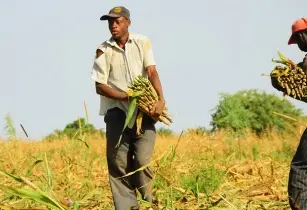FAO has said that farming and rural non-farm-based activities have potential to generate employment opportunities for Africa’s rising youth population
The UN organisation stated this at a high-level forum on ‘Harnessing Skills for Rural Transformation and achieving the Sustainable Development Goals,’ held at the margins of the UN General Assembly.
According to FAO, Africa has the youngest population and the fastest growing population in the world, which is predicted to double by 2050, creating a major impact on the employment market. With around 12mn young people joining the labour force in Africa each year, around three million jobs are created annually.
Given this, FAO said that agricultural sector and rural non-farm activities in tourism, agro-industries, food storage and transportation have high potential to create more jobs and build stronger rural communities.
Commenting about the economic opportunities of Africa’s youth, José Graziano da Silva, director-general of FAO, noted, “Investing in rural transformation and reaching a world free of hunger and malnutrition go hand in hand. Promoting better education, skills development and decent employment is vital for this transformation in Africa.”
FAO carries out 32 youth employment projects in 20 African countries, aiming to supporting the regional economic communities (RECs) to enhance their youth policies, strategies and plans and social protection measures. It provides trainings to vulnerable rural youth both in agricultural techniques as well as in business and life skills so that they become more productive and active members of their communities, stated FAO.
“But more coordinated and systematic efforts are still needed to increase impact and expand regional and country-level action in Africa,” said Silva.
“Adopting a territorial approach that focuses on strengthening the physical, economic, social and political links between small urban centers and their surrounding rural areas is equally vital. Let’s not forget that the small and medium-sized cities are the places where farmers buy seeds, send their children to school and turn to medical care,” Silva added.





